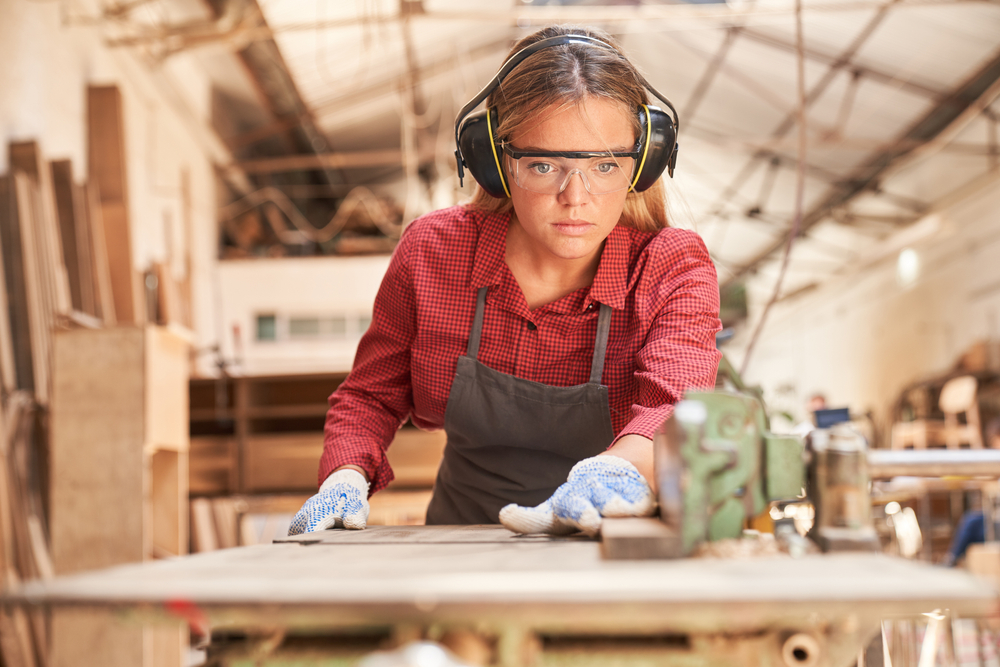
Whether you’re attending concerts, working, or doing some yard work, hearing protection is crucial in keeping your ears safe against harmful noise levels. However, a number of factors can interfere with the effectiveness of your hearing protection, leaving you exposed to possible risks. Understanding these problems can help you address them proactively and optimize the advantages of your protective gear.
Common reasons why hearing protection falters
Unexpected challenges will arise even when you observe best practices. You use your earmuffs diligently at work, use earplugs at concerts, and avoid noisy situations whenever you can. Yet, certain variables can still disrupt your hearing protection’s efficiency. Fortunately, by acknowledging these common pitfalls, you can make informed adjustments to ensure your hearing is always well-protected.
1. Specific circumstances call for specific types of hearing protection
Hearing protection isn’t one-size-fits-all, and picking the wrong type for a given environment can reduce its effectiveness.
There are generally two primary categories of hearing protection:
- Earplugs: Little foam or rubber plugs that tuck securely into the ear canal.
- Earmuffs: Larger, headphone-like device that covers the whole ear.
Each kind has its appropriate use case:
- Earmuffs are better for situations with intermittent noise, such as a construction site where machinery starts and stops constantly.
- Earplugs are suitable for environments with continual noise levels, like factory floors or airplane cabins.
If you’re in a quiet environment and need to momentarily remove your hearing protection, earmuffs are easier to handle. Disposable earplugs, on the other hand, can leave you vulnerable to hearing damage because they can be easily lost. Selecting the correct hearing protection for your needs is the first step toward safeguarding your hearing effectively.
2. Individual anatomy effects fit and effectiveness
Some devices will fit better than others based on the size and shape of the individual’s ears. An average sized ear is what basic earplugs and earmuffs are designed for, but a more individualized solution may be required for your ear’s anatomy.
- Larger ear structures: Oversized ears can make earmuffs uncomfortable, causing gaps in the seal that allow noise to penetrate.
- Smaller ear canals: The noise-blocking capability of standard-sized earplugs may not be effective if narrower ear canals impede the formation of a proper seal.
Poorly fitting hearing protection can result in frustration and a temptation to discontinue their use entirely, putting your hearing at risk. If you spend significant time in loud settings, consider investing in custom-molded earplugs or professionally fitted earmuffs. Choosing to go with a more personalized approach will offer you greater comfort and effectiveness, keeping your hearing safe in any scenario.
3. Ignoring regular maintenance and replacement
In order to remain effective, hearing protection devices need to be properly maintained just like any other devices do. Wear and tear, incorrect cleaning, and disregarding replacement schedules can all jeopardize their ability to protect your ears.
Here’s how to maintain your hearing protection:
- Clean Properly: Debris and earwax can build up on your hearing protection over time. Wash them regularly using manufacturer-recommended methods to ensure cleanliness without damaging the material.
- Inspect for Damage: Inspect the elastic band on earmuffs frequently. Their ability to effectively block noise can be jeopardized if the elastic band is loose or stretched.
- Replace Cushions: The pliability of earmuff cushions can decrease over time. Replace them as needed to maintain a proper seal.
Your hearing protection will be less effective and potentially useless if you disregard these basic maintenance tasks. Regular upkeep is essential to extend their lifespan and ensure consistent performance.
The advantage of a hearing specialist
Make an appointment with us for a consultation if you think that your hearing protection may not be getting the job done. We can examine your current devices, recommend alternatives, and even provide personalized solutions tailored to your particular requirements.
Protecting your hearing is a lifelong commitment, and it’s worth the effort to ensure you’re using the proper tools for the job. By dealing with these common challenges, you can confidently safeguard your ears from damaging noise and preserve your hearing for years to come.